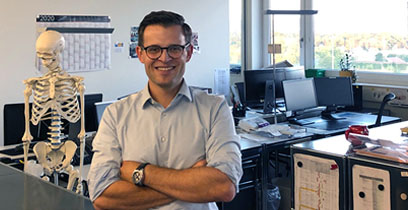
The healthcare business needs more doctors. So says Jonas Schnider, a trained surgeon who successfully extended his skills into the medtech industry. Schnider believes there is an urgent need for clinically trained professionals to act as translators in the business of healthcare.
“I believe it is crucial we have a certain amount of medical doctors who understand the clinical side and economic side and these doctors act as translators between these two worlds. This interface is highly relevant in healthcare-related industries such as pharmaceuticals, biotech, medtech and hospitals, but also VC/PE and the digital health field,” he states.
Schnider’s key concern is the potential for patient outcomes to be adversely affected as a result of the disconnect between business and clinical interests. Therefore, in his view, the patient experience and clinical outcome must be considered at every stage of strategy.
“It is important to have business discussions with people who have worked with patients, who actually know what a clinical procedure means for patients and their families. Only then can we make an informed decision that will provide actual value for the patient, the healthcare system and the business,” he says.
Now Head of Mergers & Acquisitions at Medartis, Schnider was always drawn to the business world. In fact, his application for med school was submitted at the same time as one for business school.
At the time, medical studies won his wholehearted devotion and led to a postdoctoral fellowship in the US, and the decision to specialize in hand surgery back in Switzerland. But the business buzz continued to pop up over the course of his studies and into his professional life.
“Working in a hospital, I felt the economization of healthcare was not really improving outcomes or efficiencies as it should and I thought having a business qualification would enable me to tackle the problems there,” he says.
While others might balk at the idea of plunging headlong into another demanding qualification, Schnider’s interest as a lifelong learner was piqued. His decision to pursue an MBA was based on his belief that “learning means growing” and also the rational understanding that with a seat at the corporate table, his medical knowledge could improve outcomes. There was no doubt that his existing skills would prove transferable.
“Making high-impact decisions with constrained resources – that is daily life in medicine. In order to be successful you have to adapt a structured way of solving problems, which is what you learn in med school and it proved quite helpful during my transition to McKinsey & Company. Listening holistically – to people’s concerns, aspirations and intentions is a basic skill for a physician and it has great value in business too.”
That is not to say that Schnider found the MBA a walk in the park. He admits to having felt totally overwhelmed in the first few weeks of the course as he adjusted to the pedagogical shift.
“Medical school offered a classic teacher-centered learning experience and you work very hard as an individual. At IMD the group work was a new way of learning to me – you just cannot make it by yourself. You need the team. It was challenging to adapt to this new environment but also a place where many great friendships started,” he says.
Overall for Schnider, stepping into uncertainty and new environments without losing your cool, proved the most potent business skill he developed over his MBA.
“Spending significant amount of time outside your comfort zone during the MBA really accelerates the whole learning experience and changes your habits. Embracing uncertainty and starting to feel comfortable in it is a highly valuable skill,” he says.
Now there’s a prescription for success.


